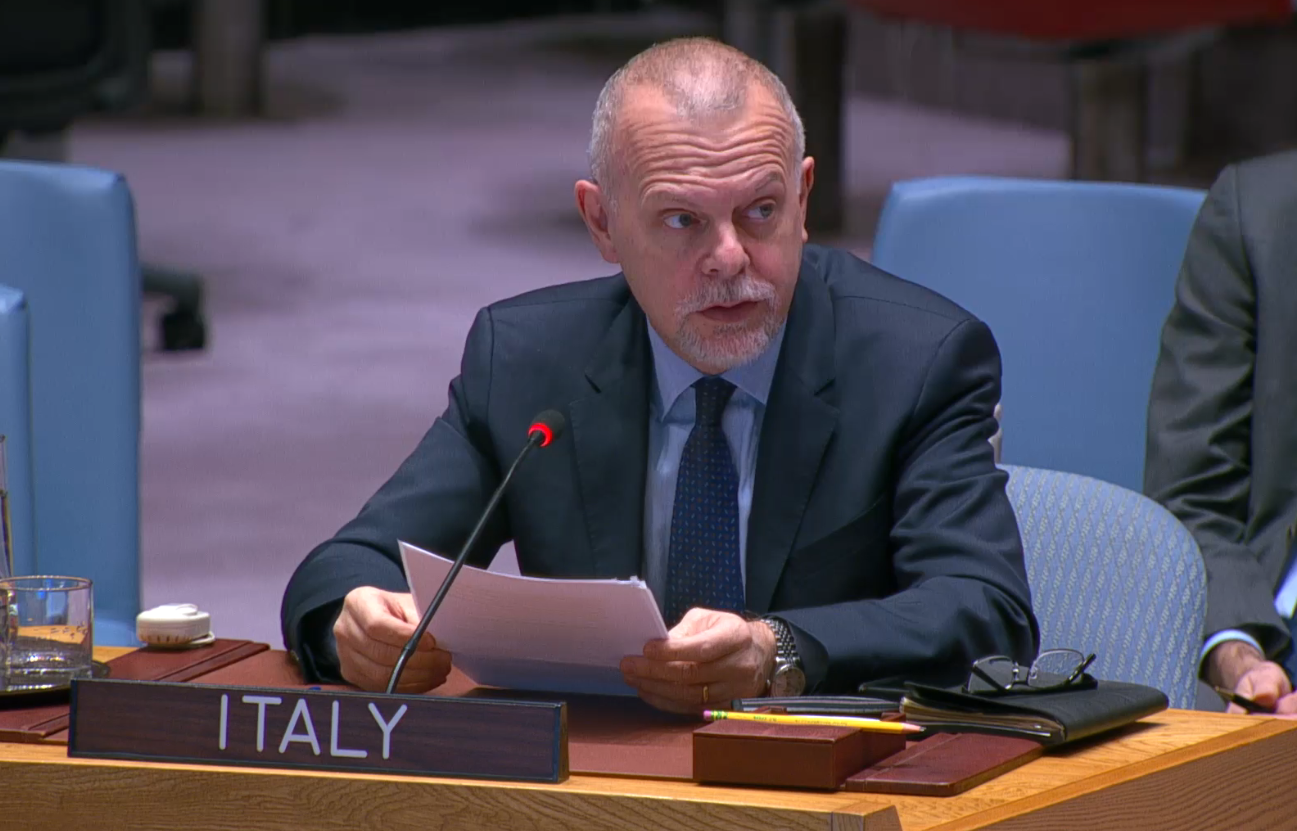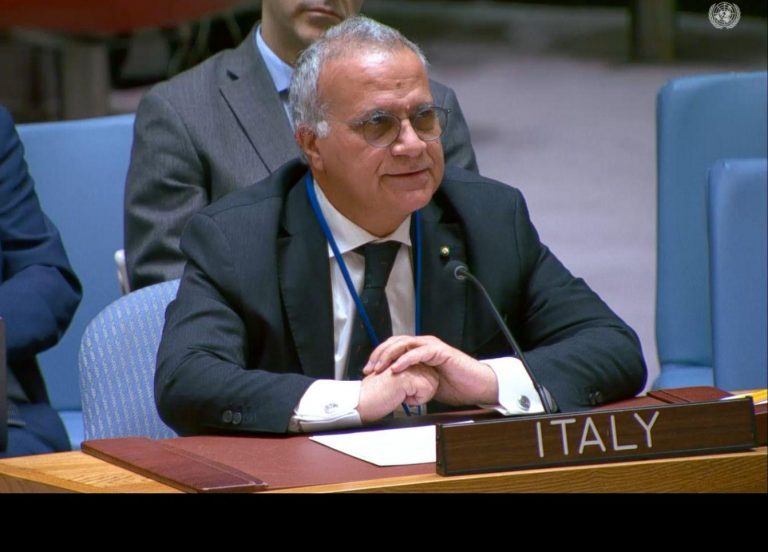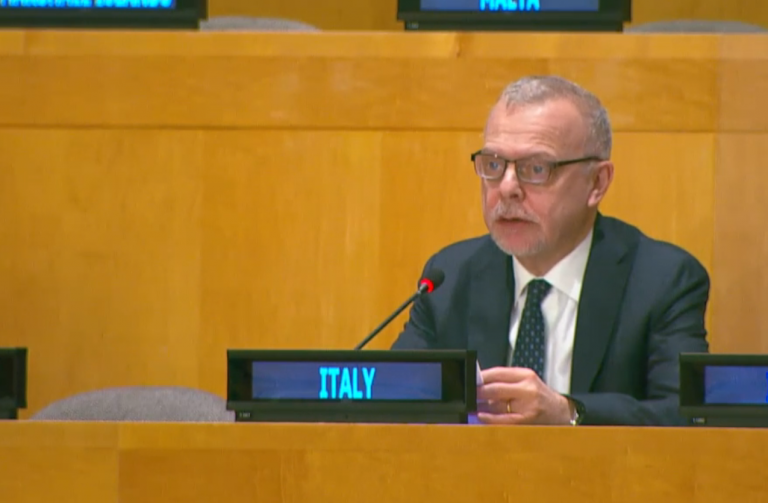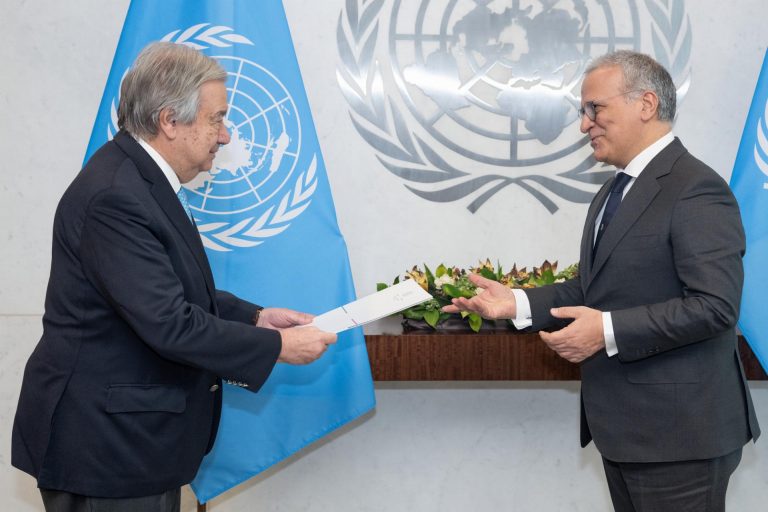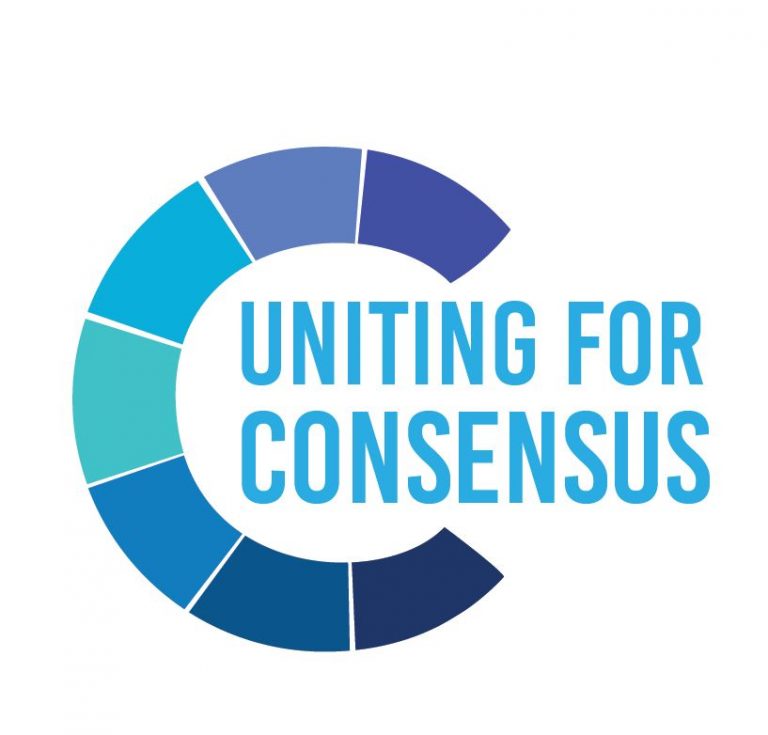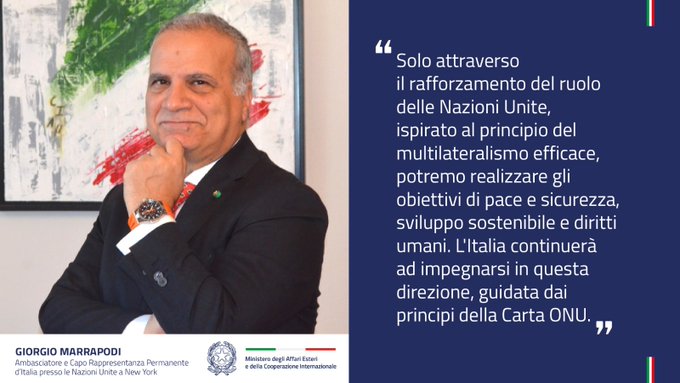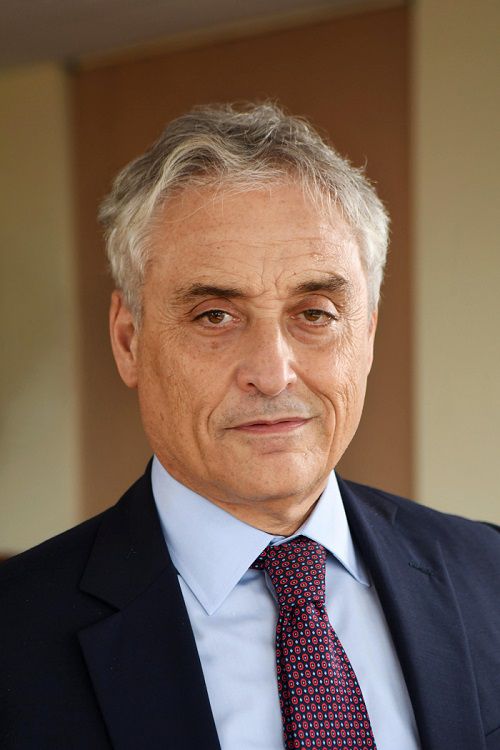Mr. President of the Security Council,
Colleagues,
Italy fully aligns itself with the Statement delivered by the European Union and wishes to add some further remarks in its national capacity.
We thank Sierra Leone for foregrounding during its Security Council’s Presidency the issue of Conflict-Related Food Insecurity, a top priority for Italy.
Food insecurity is both a humanitarian and a development imperative. We need to implement immediate actions to address the humanitarian side of food crises while working on short-medium-and-long-term development strategies to improve food systems globally.
Italy recognizes the great importance of tackling the nexus between conflict and food insecurity, which has therefore been identified as a strategic priority of our foreign policy and for global peace. This is why we firmly support Security Council Resolution 2417 and we stand ready to work within the Security Council to transform the commitments therein laid out into robust monitoring, reporting and accountability mechanisms.
Italy remains deeply committed to addressing conflict-related food insecurity in Africa. In this spirit, we are proud to support among others the populations of Eastern Sudan through a new contribution of €6.55 million euros in partnership with the World Food Programme. This initiative targets the most vulnerable, including children and pregnant or nursing women, providing essential nutrition and humanitarian assistance in Gedaref and Kassala States.
Moreover, Italy’s “Food for Gaza” initiative is a tangible expression of our commitment to safeguarding civilians and sustaining food systems in conflict-affected areas. Through close coordination with the World Food Programme, the Food and Agriculture Organization, and the International Red Cross and Red Crescent Movement, we have delivered over 2 thousand tons of food, medical, and relief supplies to the Gaza Strip.
We also continue to support Ukraine in mitigating the humanitarian impact of conflict on food security, considering that the Russian aggression has hindered food security well beyond Ukraine’s borders. In this context, we support the “Grain from Ukraine” initiative, which assists Ukraine in its grain production and export capacity. Recently, Italy has also signed an agreement allocating 9 million euros to strengthen sustainable agricultural development in the Odessa region.
Moreover, we must remember that conflict and displacement continue to disrupt food systems, from production, manufacturing, and marketing to consumption and the management of food loss and waste.
This is why we need an integrated approach that factors in fragility, post-crisis contexts, vulnerability, and food insecurity as a multidimensional phenomenon (not just technical/agricultural).
The Rome-based Agencies — FAO, IFAD and WFP — stand at the heart of global efforts to make food systems more resilient, sustainable and inclusive. From early warning and anticipatory action to smallholder financing and climate-smart agriculture, they are uniquely positioned to connect humanitarian response with long-term development. Italy is proud to host and support the Rome-based Agencies as global hubs for food security and nutrition.
More recently, Italy co-hosted, together with Ethiopia, the UN Food Systems Summit +4 Stocktake. Following the previous editions of the Summit, held in New York and Rome, we strongly believed in the importance of holding this second Stocktake moment in Africa, which is one of the Continents most affected by conflicts.
Today, let us reiterate our collective commitment to confront food insecurity with urgency, determination, innovation and solidarity.
Thank you.







